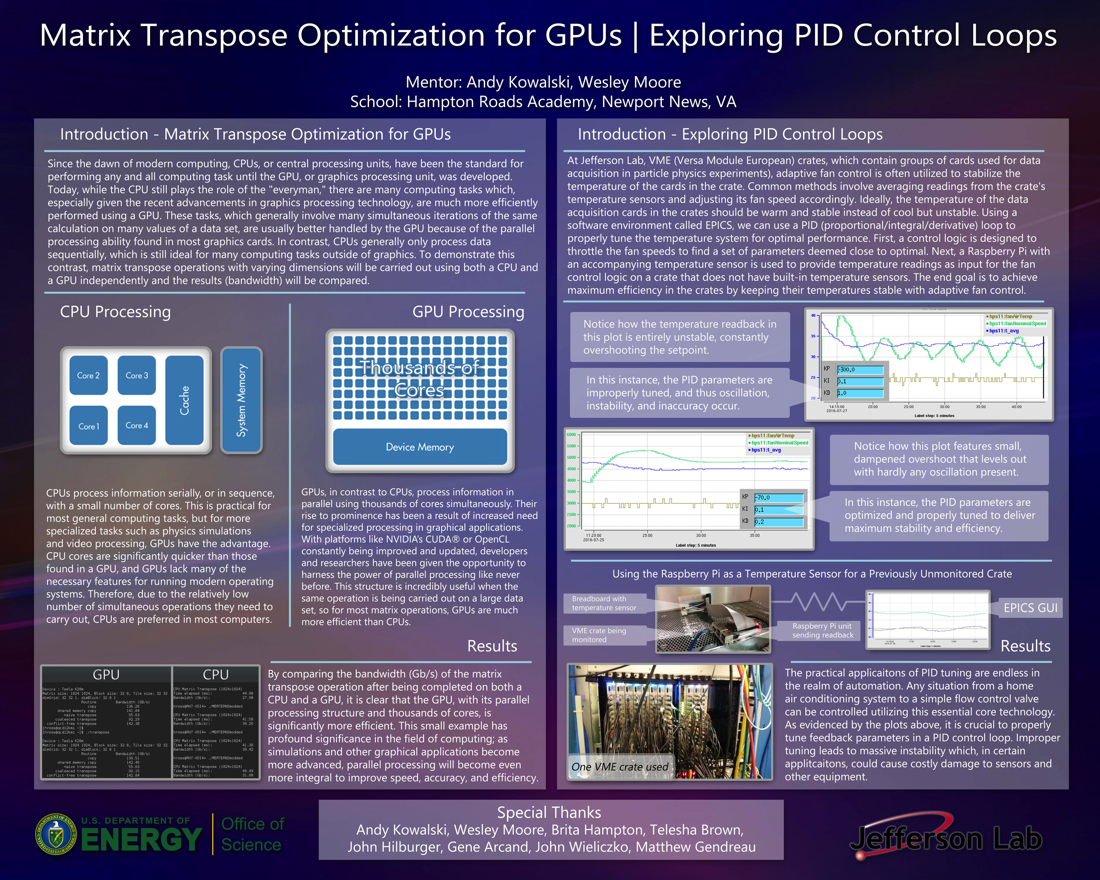High School Research at Jefferson Lab
Matrix Transpose Optimization for GPUs & Exploring PID Control Loops
Since the dawn of modern computing, CPUs, or central processing units, were the standard for performing any and all computing task until the GPU, or graphics processing unit, arrived on the scene. Today, while the CPU still plays the role of the "everyman," there are many computing tasks which, especially given the recent advancements in graphics processing technology, are much more efficiently performed using a GPU. These tasks, which generally involve many simultaneous iterations of the same calculation on values of a data set, are usually better handled by the GPU because of the parallel processing structure found in most modern GPUs. In contrast, CPUs generally only process data sequentially, which is still ideal for many computing tasks outside of graphics. To demonstrate this contrast, matrix transpose operations with varying dimensions will be carried out using both a CPU and a GPU independently and the results (bandwidth) will be graphed and compared.
On the VME crates at Jefferson Lab (groups of computers used for data acquisition in particle physics experiments) adaptive fan control is sometimes needed to stabilize the temperature of the cards in the crate. This is achieved by averaging the readings from the crate's built-in temperature sensors and adjusting the fan speeds accordingly. Ideally, the temperature of the data acquisition cards in the crates should be warm and stable instead of cool and varying. Using an software environment called EPICS, we can send commands to the crate fans and receive sensor readings from them as well. Phase 1 of the project will be to graph the crate temperatures as-is and then design a control logic to throttle the fan speeds. Phase 2 will use the Raspberry Pi to provide temperature readings as input for the fan control logic on the crates that do not have built-in temperature sensors. The end goal is to achieve maximum efficiency in the crates by keeping their temperatures stable with adaptive fan control.

Citation and linking information
For questions about this page, please contact Steve Gagnon.
